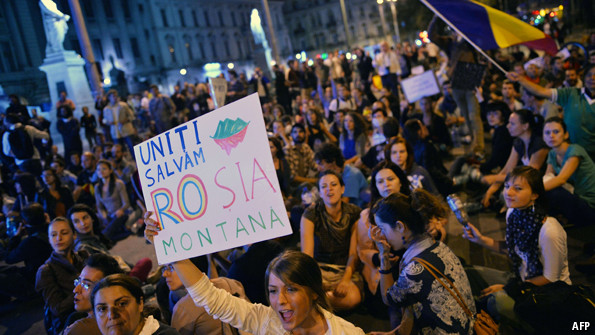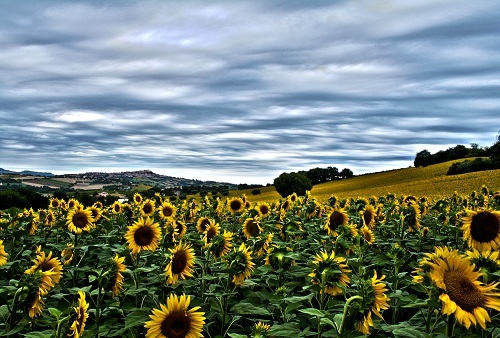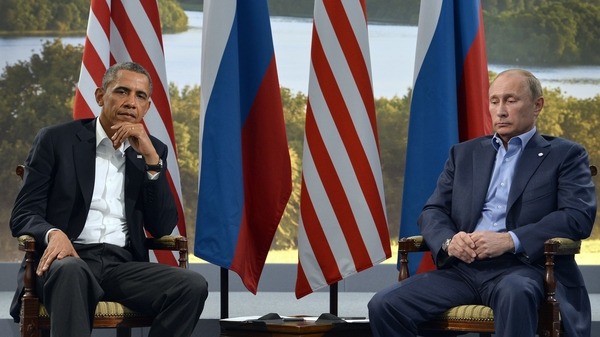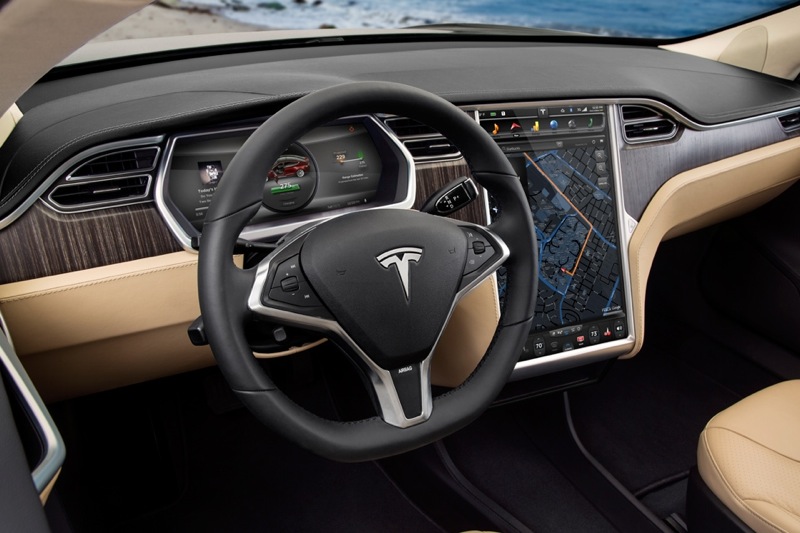Golden profits v environmental concerns

by The Economist - L.C. | BUCHAREST
THE draft law recently adopted by the Romanian government that allows a Canadian company to dig for gold at Rosia Montana, a Carpathian town, made many Romanians very angry this week. (For a slide show on Rosia Montana, click here.) Thousands of people took the streets of Bucharest and other cities across the country to protest against the plans of a Canadian company, Gabriel Resources, to extract more than 300 tonnes of gold and 1500 tonnes of silver. The project is expected to bring a profit of $7.5 billion according to its investors.
The project at Rosia Montana, Europe’s largest opencast gold mine, has sparked a big controversy. Environmentalists and civic-rights groups are concerned about the use of cyanide in the extraction process. They believe this will destroy not only the environment, but also the rich cultural heritage of the area.
The draft law grants the government a royalty rate of 6% and increases its stake in the project to 25%, but many Romanian protesters believe this is not enough. It also declares the project to be “of national interest”. This means the locals of Rosia Montana who refuse to sell their properties to Gabriel Resources and move somewhere else before the project begins will be (legally) forced to evacuate the area.
“We don’t want to sell our country for free to foreigners. We have a corrupted government that is not really listening to our opinions,” said Dana Gradinaru, a protestor, during one of the demonstrations in Bucharest. “This is our country and we love it. We want our children to live here in the future and enjoy Romania’s beautiful landscapes. If they are going to use cyanide to extract the gold, they will create an environmental disaster,” she added before starting to shake a bottle filled with pebbles, as a way of protesting.
The protests gathered people from across all social layers: students, teachers, anthropologists and activists as well as artists, engineers, retired or the unemployed. Some of them accused the Romanian media of censoring the story. They believe Gabriel Resources paid the media massive fees for promoting their ads throughout the years. The Canadian company denies any illegal payments and repeatedly stated that the project will not have massive negative effects on the environment.
Alex Mateescu, an architect, protested against the state’s attitude towards the project. “The government had to make a draft law in order to grant permission to the Canadian company because they couldn’t find any legal way to do it in the last 14 years. What a callous government this is,” he says while waving the Romanian flag.
Victor Ponta, the prime minister, seems to have some difficulties in deciding if he is supporting the project or not. Mr Ponta opposed the project before taking the power last year. He said he approved the draft law because he wants the parliament to debate it. Confusingly, Mr Ponta, who is also an MP, also said that he will vote against the project in parliament, where a debate and a vote on this is expected to take place in the next two weeks.
Traian Basescu, the president, who supported the Rosia Montana project in the past, has now decided to take a step back: He said that if the debate in parliament splits society, he wouldn’t promulgate the law until a referendum on the controversial project takes place.
The Alliance for a Clean Romania, a coalition of NGOs and key figures from the academic society, urged the government to withdraw the draft and start a public dialogue with civil society instead. But for the moment, the fate of this project lies in the hands of Romania’s MPs. Protesters fear that politicians will ignore their voice and just follow the money. This is a familiar scenario to Romanians in the last two decades.
Read the original article on: http://www.economist.com/blogs/easternapproaches/2013/09/romanian-politics?zid=307&ah=5e80419d1bc9821ebe173f4f0f060a07





